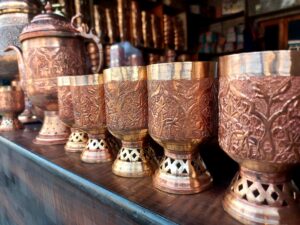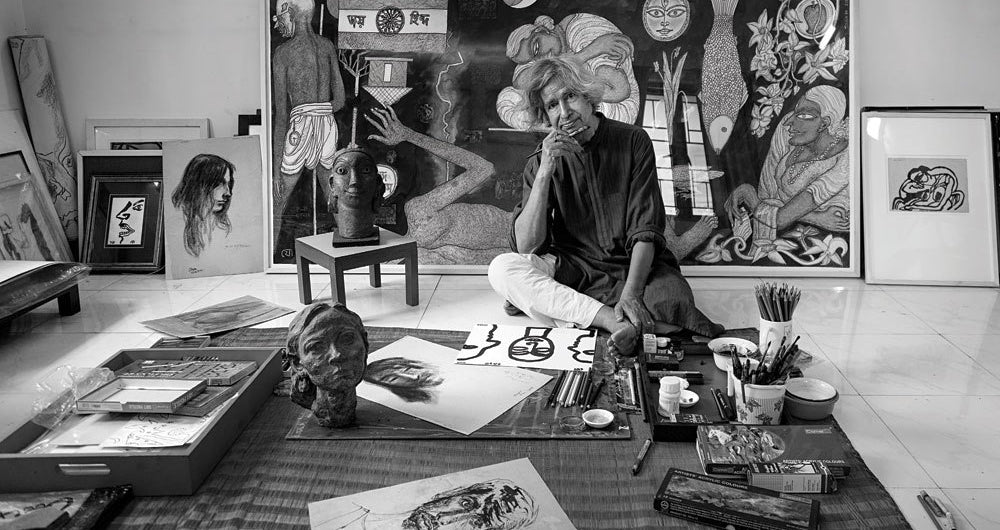
Menu

Kashmir’s copperware tradition is a gleaming testament to its rich artistic heritage. Walk through the lanes of Srinagar’s Zaina Kadal, and you’ll find workshops ringing with the sound of chisels on copper. Here, artisans known as naqash craft beautifully engraved utensils, trays, samovars, and decorative pieces.
The process starts with shaping raw copper into the desired form, often over open flames. Once the vessel is made, it’s polished and handed to the engraver. Using small chisels and hammers, the naqash carves intricate designs—floral patterns, chinar leaves, calligraphy—that transform a utilitarian pot into a work of art.
Copperware isn’t just decorative. Traditionally, households used copper utensils for cooking and serving, valuing copper’s antimicrobial properties and even claiming health benefits. Kashmiri weddings often feature copper gift sets, signifying both beauty and practicality.
Yet, this craft faces challenges from mass-produced, machine-stamped alternatives. Many artisans struggle to make ends meet, risking the loss of this heritage. Preserving Kashmiri copperware means valuing slow, skilled, human-made work over cheap imitation.
Buying authentic Kashmiri copperware connects you to centuries of tradition, supports local craftspeople, and brings timeless elegance to everyday life.



